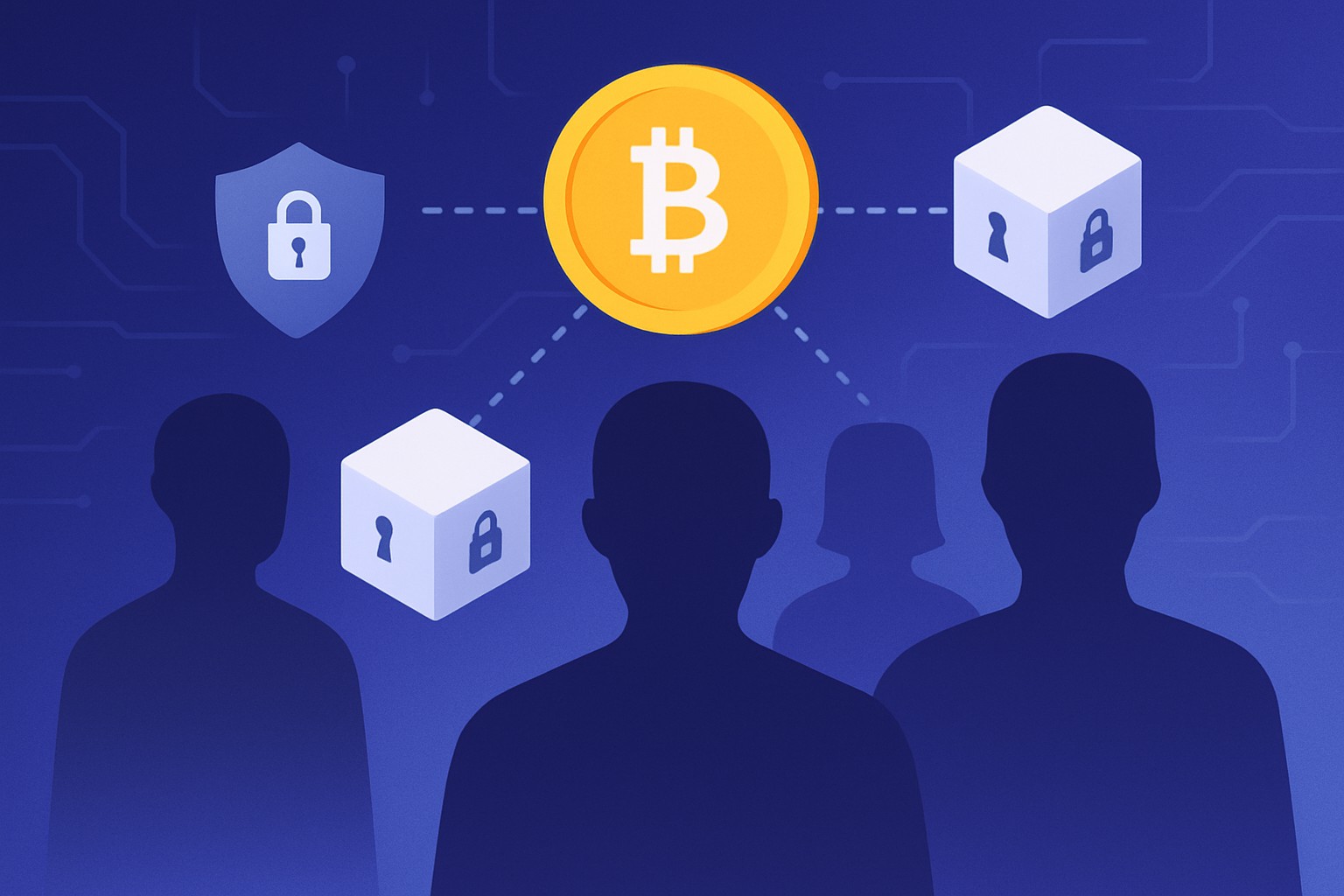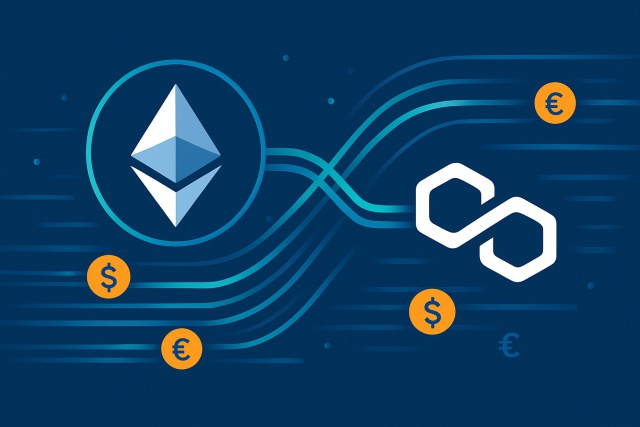Top Privacy Coins for Anonymous Transactions


Privacy coins have stepped into the spotlight as vital tools for keeping transactions under wraps. Unlike typical cryptocurrencies that parade transaction histories on public blockchains for all to see, privacy coins are crafted to veil the nitty-gritty details — who sent what to whom and the exact amounts involved.
Privacy coins are a special kind of cryptocurrency designed to keep user identities and transaction details private. They use sophisticated cryptographic tricks like ring signatures, zero-knowledge proofs and stealth addresses to make transactions tough to track down.
How We Went About Choosing the Leading Privacy Coins
Our selection process took a good hard look at a wide range of factors that capture both technical strength and real-world usability. We dug into each coin’s privacy features and checked the security and stability of their underlying blockchain. We also sized up how widely they’re adopted and traded. We considered the ongoing support from developers and how cleverly they handle regulatory challenges without sacrificing user privacy.
- We dug into how well each coin guards user anonymity, weighing both the default privacy settings and any optional bells and whistles they offer.
- We took a closer look at the blockchain tech under the hood to see how it keeps things secure and scales gracefully over the long haul.
- We measured transaction speeds and gave some thought to how privacy features might throw a wrench in the works performance-wise.
- We kept a keen eye on decentralization to ensure there’s no single point of control or some hidden bottleneck waiting to trip things up.
- We sized up the strength of each coin's community, since a lively and engaged crowd usually means the project is here to stay.
- We scoped out wallet options to make sure users can access their coins without a hitch—smooth and secure is the name of the game.
- We checked the pulse on development activity, looking for steady updates and prompt security patches that keep things shipshape.
1. Monero (XMR) The Go-To Name When Privacy Takes Center Stage
Monero stands out as one of the top privacy-focused cryptocurrencies, employing clever technologies like ring signatures, stealth addresses and Ring Confidential Transactions (RingCT). Ring signatures mix the sender's input with a crowd making it nearly impossible to tell who spent the funds. Stealth addresses generate unique one-off destination addresses, keeping the recipient's identity private. RingCT conceals transaction amounts so the details stay private.
Monero continues to push forward with consistent developer efforts and routine protocol upgrades. Its knack for staying ASIC-resistant plays a big role in keeping mining decentralized, opening the door for a wider crowd of participants to get involved. In the real world, its use stretches from bustling online marketplaces to privacy-conscious individuals who genuinely want their transactions to fly under the radar.
2. Zcash (ZEC) Privacy You Can Actually Choose, Thanks to zk-SNARKs
Zcash sets itself apart by using zero-knowledge succinct non-interactive arguments of knowledge better known as zk-SNARKs—an impressive cryptographic technique that powers its shielded transactions. Unlike Monero where every transaction is private by default, Zcash lets users choose between transparent and shielded transactions. It’s a clever balancing act that juggles privacy and the tricky demands of regulatory compliance.
Zcash's optional privacy feature has helped it find a sweet spot in regulated environments by offering transparency when it counts without giving up its core privacy strengths. This clever balance lets Zcash cater to both businesses and individuals who crave auditability and privacy. It is a tightrope walk but it mostly works.
3. Pirate Chain (ARRR) Built from the Ground Up with Privacy in Mind
Pirate Chain really carves its own path by putting privacy front and center for every single transaction. It leans heavily on zk-SNARKs to keep things fully anonymous and unlinkable.
Pirate Chain is still a bit of the new kid on the block but it has swiftly rallied a dedicated community thanks to its unwavering focus on privacy and security. The clever design keeps transaction data completely off the blockchain and delivers a level of anonymity that leaves many competitors in the dust.
4. Dash (DASH) Bringing Together Privacy Features and Lightning-Fast Transactions
Dash steps up privacy with its PrivateSend feature, which cleverly mixes coins from multiple users to make tracking transactions a real headache. This trick doesn’t slow things down—Dash still keeps its hallmark lightning-fast transaction times.
Dash leans heavily on a robust network of Masternodes to keep decentralization and governance in check while offering neat privacy features. Its wide acceptance among merchants and a buzzing development community make it a favorite for users who want privacy without sacrificing speed or ease of use.
5. Verge (XVG) Privacy That Spans Multiple Protocols
Verge charts its own path by blending a handful of anonymity protocols including Tor and I2P. These overlay networks work behind the scenes to hide users' IP addresses and bounce transactions through multiple encrypted nodes like a game of digital hot potato. This makes tracking users' geographic locations and network identities quite challenging. Verge also offers optional stealth transactions that tuck payment details out of sight and create a multi-layered privacy shield guarding transaction info and network data.
Verge’s architecture strikes a balance between robust privacy and smooth scalability. It enables quick transactions that work well for a diverse crowd of users. Since it’s open-source and community-driven it keeps getting better over time like a fine wine or a legendary potluck dish. Its privacy settings are flexible too and let users tweak their security levels to fit their comfort zone.
A Closer Look Side-by-Side at the Top Privacy Coins
| Coin Name | Privacy Technology | Default Privacy Status | Transaction Speed | Market Capitalization | Wallet Options | Development Activity | Regulatory Status |
|---|---|---|---|---|---|---|---|
| Monero (XMR) | Ring Signatures, RingCT, Stealth Addresses | Privacy enabled by default | Typically around 2 minutes, give or take | High | Official GUI and CLI wallets, plus hardware wallets like Ledger and Trezor | Very active | Faces regulatory scrutiny but remains a favorite in privacy circles |
| Zcash (ZEC) | zk-SNARKs | Privacy optional | Roughly 2.5 minutes on average | High | GUI wallets along with support for Ledger hardware wallets | Active | Recognized by regulators, with features designed to play nice with compliance |
| Pirate Chain (ARRR) | zk-SNARKs with mandatory shielded transactions | Privacy enabled by default | Fast and furious at about 30 seconds | Low to mid | Official wallets available on both mobile and desktop platforms | Growing | Less well known, builds a tight-knit niche community amid cautious regulatory eyes |
| Dash (DASH) | PrivateSend (coin mixing) | Privacy optional | Nearly instant, hovering around 2 seconds | Mid | Core wallets plus compatibility with hardware wallets | Active | Generally accepted, striking a balance between privacy perks and regulatory demands |
| Verge (XVG) | Tor, I2P, stealth transactions | Privacy optional | Moves along in about 30 seconds | Low to mid | Official wallets that cleverly integrate Tor and I2P | Moderate | Has had its ups and downs, including some exchange delistings over privacy concerns |
Practical Uses and Key Considerations for Privacy Coins That You Actually Need to Know
Privacy coins play a vital role for users who want to keep their financial activities private from governments, hackers and data brokers. They often come to the rescue in protecting personal privacy especially in places with tight controls. They are a lifeline for businesses that need discretion in their transactions.
People who rely on privacy coins really need to zero in on wallet security by choosing wallets that come with solid reviews and get updated on the regular. Keeping your operational security tight is key—leaking IP addresses or other metadata is a rookie mistake nobody wants to make. Usually, the best advice is to switch up your addresses often and avoid linking those addresses to your real-world identity like the plague. Even when privacy features are rock solid, there is still a chance of slipping up if you’re not careful with metadata or if you let info spill outside the blockchain.
Emerging Trends and Innovations Shaking Up Privacy Coins
Emerging technologies are improving privacy by focusing on scalability and introducing cross-chain privacy protocols that let users move assets between blockchains without a trace. Innovations like bulletproofs, new zero-knowledge proofs, and decentralized mixing services are in development.
Privacy coins appear ready to evolve into something quite interesting—finding that sweet spot between regulatory transparency demands and the all-important need for privacy. They might embrace hybrid models that let users choose what to share, when to share it. Striking this kind of balance could very well be the secret sauce for winning broader acceptance across global markets.
Frequently Asked Questions
Are privacy coins completely anonymous and untraceable?
Top privacy coins like Monero and Pirate Chain use advanced cryptography that makes tracing transactions feel like finding a needle in a haystack. Still, no system is bulletproof. Usually the weak spots come down to user slip-ups like revealing your IP address or sharing info outside the blockchain. These technologies usually offer much better anonymity than transparent blockchains.
What is the main difference between Monero's and Zcash's approach to privacy?
Monero has privacy on by default, using ring signatures and RingCT to cloak every transaction. Zcash lets users pick between transparent transactions similar to Bitcoin or shielded ones powered by zk-SNARKs for full anonymity. This flexibility gives Zcash an edge when navigating regulatory demands.
Can I use privacy coins for everyday purchases?
It really depends on the coin and who accepts it. Dash was designed for speedy everyday spending and has an optional PrivateSend feature. More merchants are accepting privacy coins, but they are still not as widely accepted as Bitcoin. So, you’ll need to look for vendors who support them.
Are privacy coins legal to use?
Most places say yes but the rules are evolving quickly. Some exchanges have dropped certain privacy coins due to regulatory pressure. It’s important to know the laws where you live because you might need to handle extra steps like tax reporting or anti-money laundering checks.
How do I choose the best privacy coin for my needs?
It helps to get clear on what matters to you. Are you after ironclad anonymity like Monero or Pirate Chain? Or do you want the flexibility to choose when to be private, like with Zcash? Maybe super-fast everyday transactions as Dash offers catch your eye. Also weigh factors like developer community strength, wallet options and liquidity — all key to making sure your coin fits your plans.
Start Your Crypto Journey with Coinbase Today
Ready to enter the cryptocurrency market but unsure where to begin? Coinbase makes buying, selling, and storing digital assets simple and secure for beginners and experts alike.








